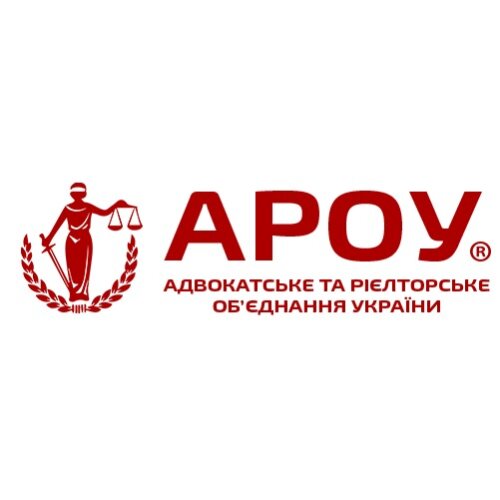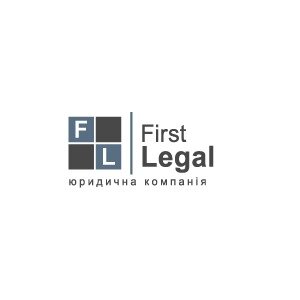Best Sanctions & Export Controls Lawyers in Ukraine
Share your needs with us, get contacted by law firms.
Free. Takes 2 min.
Or refine your search by selecting a city:
List of the best lawyers in Ukraine
About Sanctions & Export Controls Law in Ukraine
Sanctions and export controls are essential aspects of Ukrainian law, aiming to comply with both national interests and international obligations. Sanctions are restrictive measures imposed to achieve foreign policy or security objectives, often targeting specific countries, individuals, or entities. Export controls regulate the transfer of goods, technologies, and services to ensure that sensitive items do not fall into the wrong hands and that Ukraine adheres to its international commitments.
Ukraine applies various types of sanctions, including economic, financial, and personal measures, in response to actions that threaten national security or international peace. Similarly, export controls govern the export, re-export, and transit of items such as dual-use goods, military equipment, and technology, requiring businesses and individuals to comply with strict rules set out in domestic legislation and international agreements.
Why You May Need a Lawyer
Navigating the complexities of sanctions and export control regulations can be daunting. Legal assistance may be necessary in the following situations:
- You operate a business involved in the export, transit, or import of goods or technologies subject to control, and need to ensure compliance.
- You have discovered that your company or assets are listed in a Ukrainian or international sanctions regime and wish to challenge or understand the implications.
- You require guidance on applying for export licenses or authorizations for controlled goods or technologies.
- You are facing investigation or enforcement actions related to alleged violations of sanctions or export control laws.
- You need advice on structuring transactions to avoid inadvertent breaches of sanctions or export controls.
- You represent a foreign investor or partner impacted by Ukrainian or international sanctions enforcement.
- You are concerned about personal liability for compliance failures within your organization.
In any of these scenarios, qualified legal advice can help protect your interests, minimize risks, and ensure full compliance.
Local Laws Overview
Sanctions and export controls in Ukraine are governed by a combination of national statutes, cabinet resolutions, and commitments under international treaties. The most prominent legal instruments include:
- Law on Sanctions: Establishes the basis for implementing various sanctions measures on individuals, entities, and countries. The National Security and Defense Council of Ukraine (NSDC) is responsible for deciding on the application of sanctions, which are formalized by presidential decrees.
- Law on State Control of International Transfers of Military and Dual-Use Goods: Sets the framework for regulating exports, imports, and transits of military goods and items with both civilian and military uses. The State Service of Export Control of Ukraine (SSEC) oversees licensing and enforcement.
- Customs Code and Other Regulations: Complement the above laws by defining prohibited or restricted goods and the necessary customs procedures.
- International Obligations: Ukraine is a member of various international export control regimes such as the Wassenaar Arrangement. The country also aligns its sanctions policy with the European Union and other partners.
These laws impose obligations on companies and individuals to verify sanctions lists, obtain proper export or transit licenses, and implement compliance programs.
Frequently Asked Questions
What are sanctions in Ukraine?
Sanctions are restrictive measures imposed by the Ukrainian government or international partners to influence or penalize individuals, entities, or countries for actions threatening security or violating international norms.
Who administers sanctions in Ukraine?
The National Security and Defense Council proposes sanctions, which are enacted by presidential decree and published by the government for enforcement.
What are export controls?
Export controls are regulations restricting the transfer, sale, or sharing of certain goods, technologies, or services, especially those with military or dual use, to prevent misuse and comply with international responsibilities.
Does my business need an export license?
If your business deals with military items, dual-use goods, or technologies subject to control, you must apply for an export license through the State Service of Export Control of Ukraine.
How can I find out if I am subject to Ukrainian sanctions?
Sanctions lists are published by the Ukrainian government and updated regularly. Legal counsel can help you check relevant listings or notifications.
What penalties exist for violating sanctions or export controls?
Violations may result in substantial fines, asset freezes, criminal prosecution, and reputational damage for both individuals and businesses.
Can Ukrainian sanctions conflict with foreign sanctions?
While Ukraine often aligns with EU and US sanctions, differences can exist. Legal advice is recommended to navigate overlapping or conflicting measures.
How can I challenge a sanctions listing?
Affected parties may apply for reconsideration or appeal through Ukrainian courts or submit petitions to relevant authorities. A lawyer can assist in preparing and presenting your case.
What compliance measures should companies implement?
Companies should adopt due diligence procedures, regular screening against sanctions lists, and comprehensive internal controls to ensure ongoing compliance.
Are there exemptions or special procedures for humanitarian goods?
Some exemptions exist for humanitarian aid or specific items, subject to approval by the authorities. Legal advice is often necessary to navigate these exceptions.
Additional Resources
For more information or specific inquiries, you may consult the following governmental bodies and organizations related to sanctions and export controls in Ukraine:
- National Security and Defense Council of Ukraine: Decision-maker on the application of sanctions.
- State Service of Export Control of Ukraine: Oversees export control compliance and licensing.
- Ministry of Economy of Ukraine: Involved in aspects related to international trade controls.
- Ukrainian Chamber of Commerce and Industry: Provides relevant guidance on foreign trade regulations.
- Ukrainian customs authorities: Handle the clearance and inspection of exports and imports.
- Professional legal associations supporting business and compliance issues.
Next Steps
If you need legal assistance regarding sanctions or export controls in Ukraine, take the following actions:
- Assess your needs, including any business activities, transactions, or personal circumstances potentially affected by these laws.
- Gather all relevant documentation, such as contracts, export records, and correspondence with authorities.
- Seek a specialized legal practitioner with experience in sanctions and export controls in Ukraine.
- Schedule a consultation to discuss your situation, clarify your exposure, and outline a compliance or defense strategy.
- Stay informed about ongoing regulatory changes, as the legal landscape in this area can evolve rapidly.
Prompt legal guidance can help you minimize liabilities, maintain compliance, and position your business or personal interests securely within Ukrainian and international legal frameworks.
Lawzana helps you find the best lawyers and law firms in Ukraine through a curated and pre-screened list of qualified legal professionals. Our platform offers rankings and detailed profiles of attorneys and law firms, allowing you to compare based on practice areas, including Sanctions & Export Controls, experience, and client feedback.
Each profile includes a description of the firm's areas of practice, client reviews, team members and partners, year of establishment, spoken languages, office locations, contact information, social media presence, and any published articles or resources. Most firms on our platform speak English and are experienced in both local and international legal matters.
Get a quote from top-rated law firms in Ukraine — quickly, securely, and without unnecessary hassle.
Disclaimer:
The information provided on this page is for general informational purposes only and does not constitute legal advice. While we strive to ensure the accuracy and relevance of the content, legal information may change over time, and interpretations of the law can vary. You should always consult with a qualified legal professional for advice specific to your situation.
We disclaim all liability for actions taken or not taken based on the content of this page. If you believe any information is incorrect or outdated, please contact us, and we will review and update it where appropriate.
Browse sanctions & export controls law firms by city in Ukraine
Refine your search by selecting a city.

















